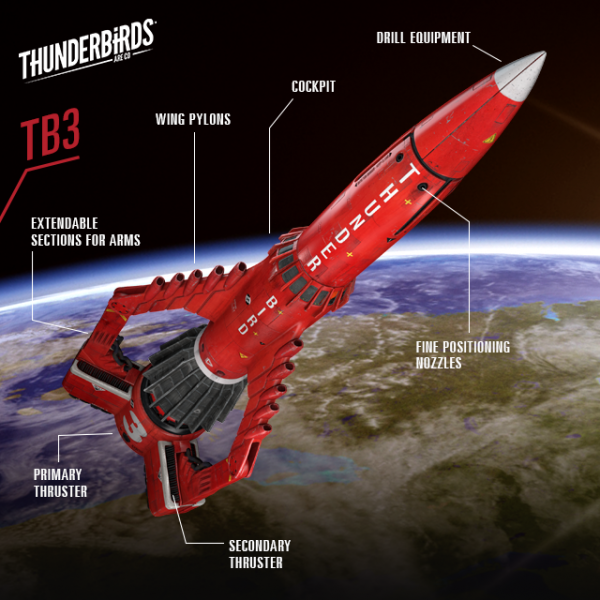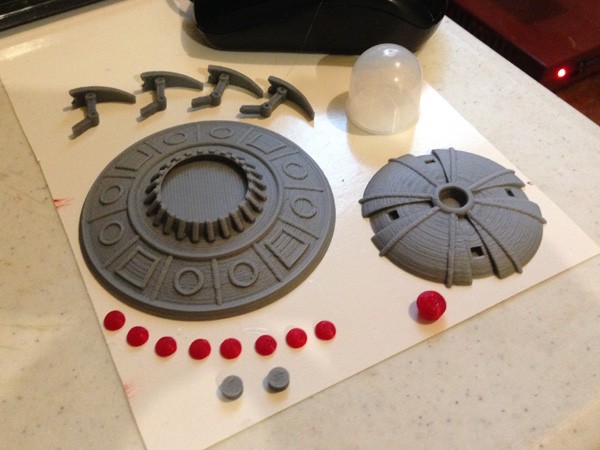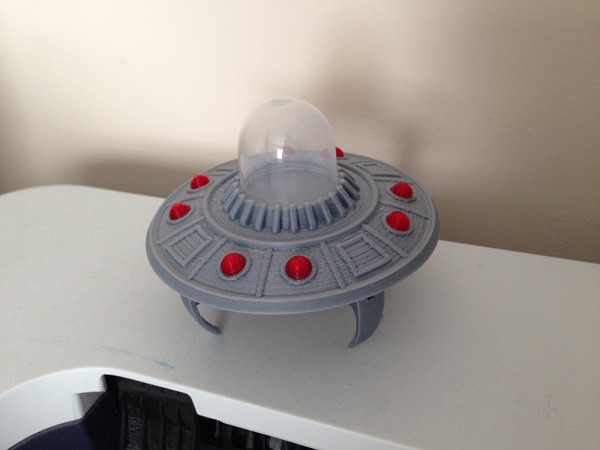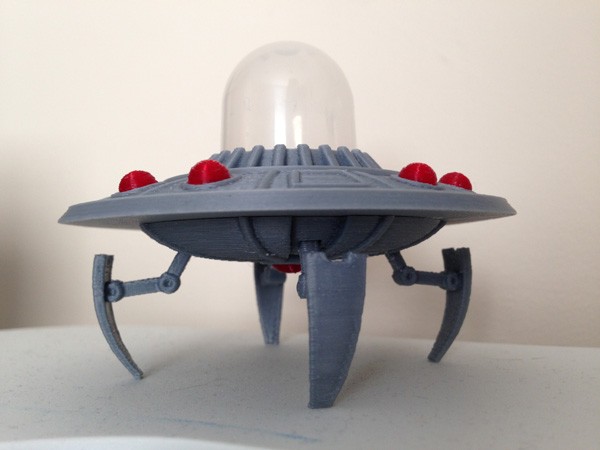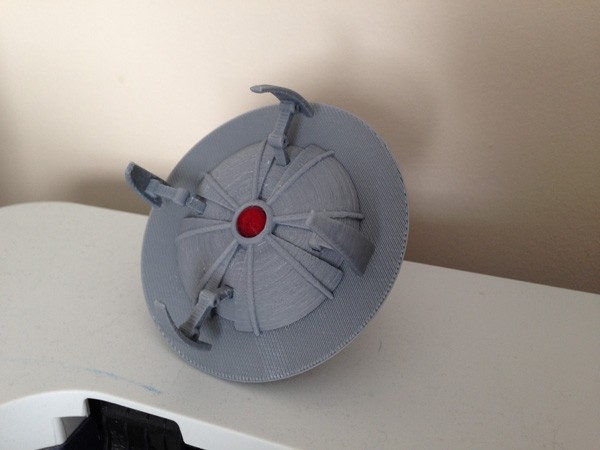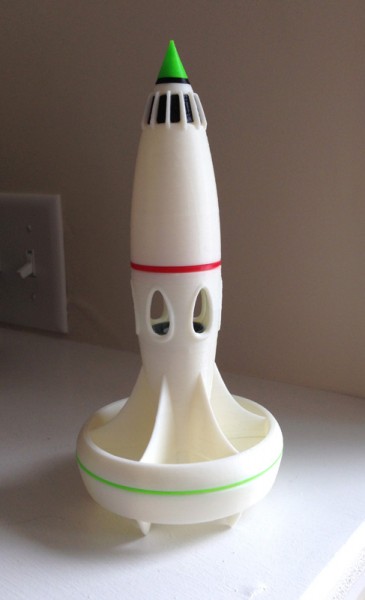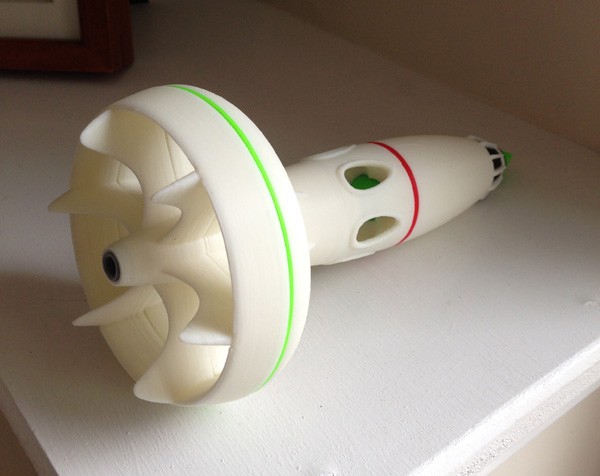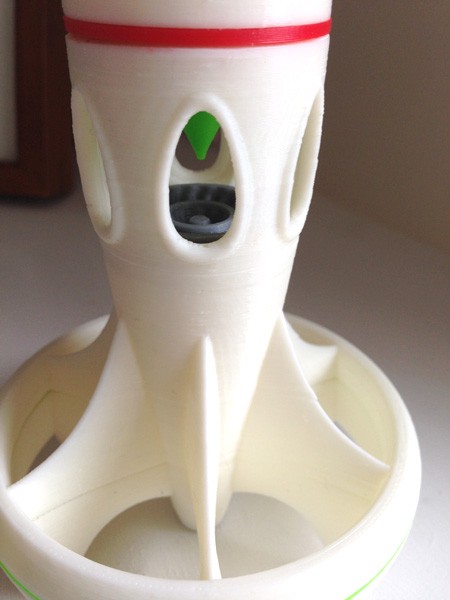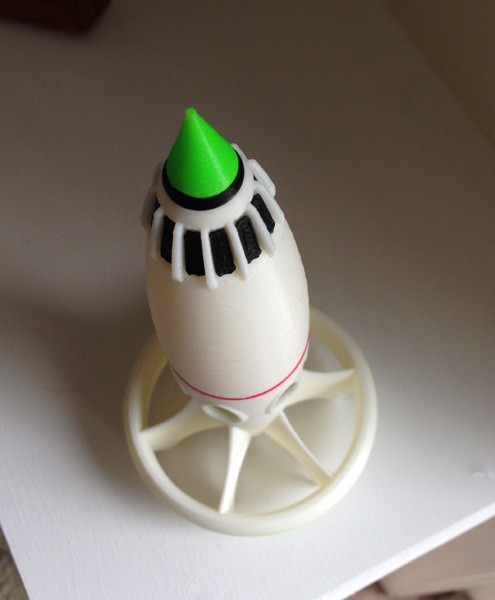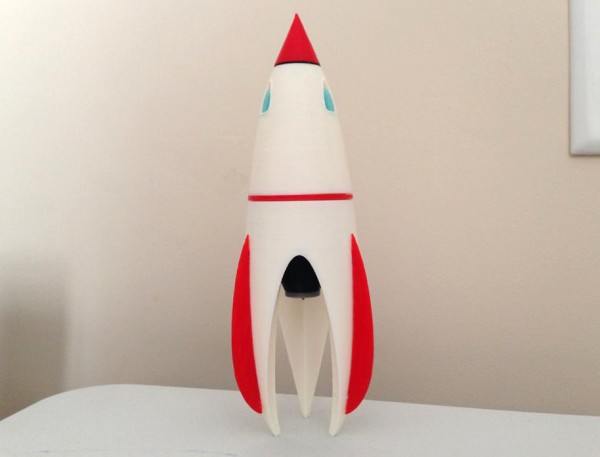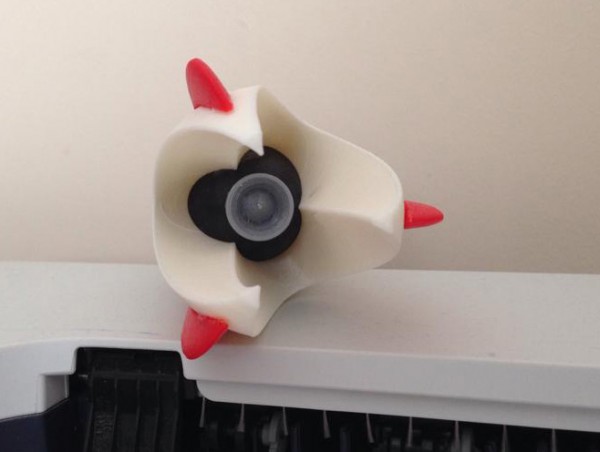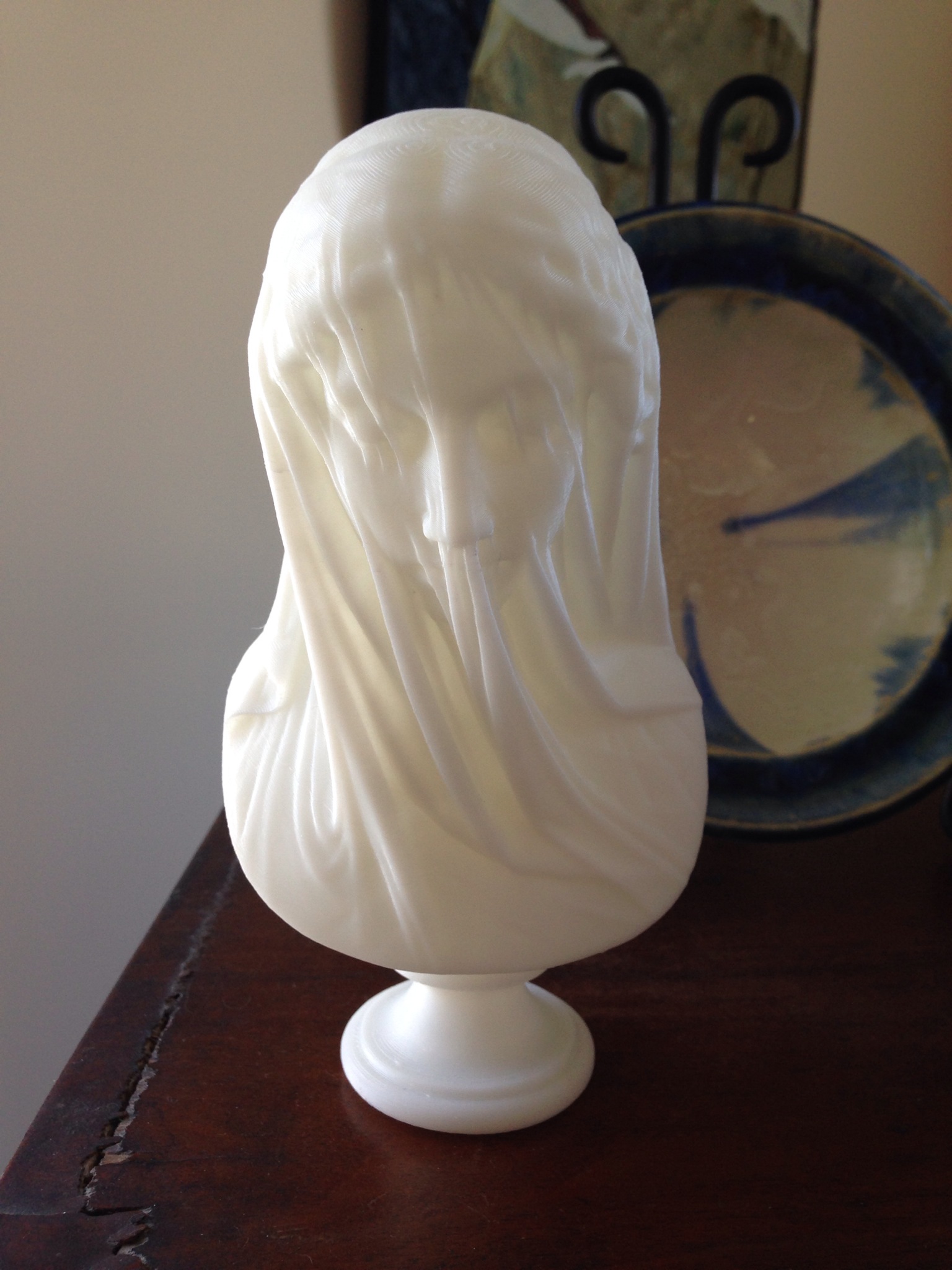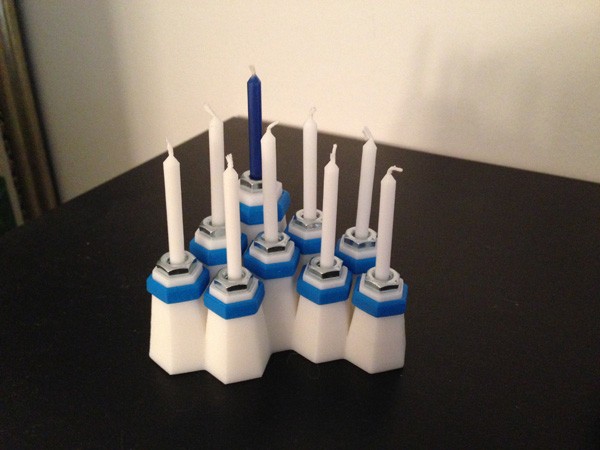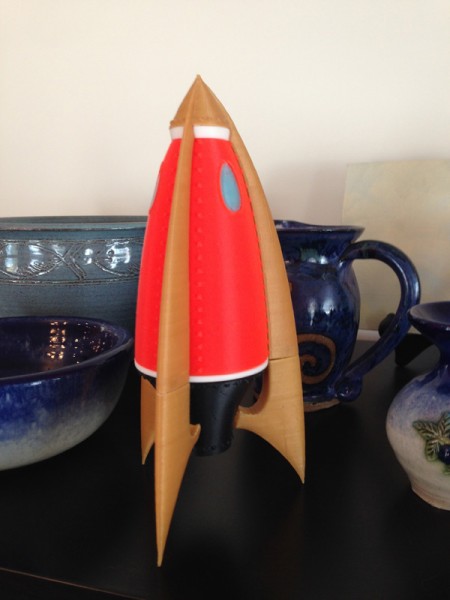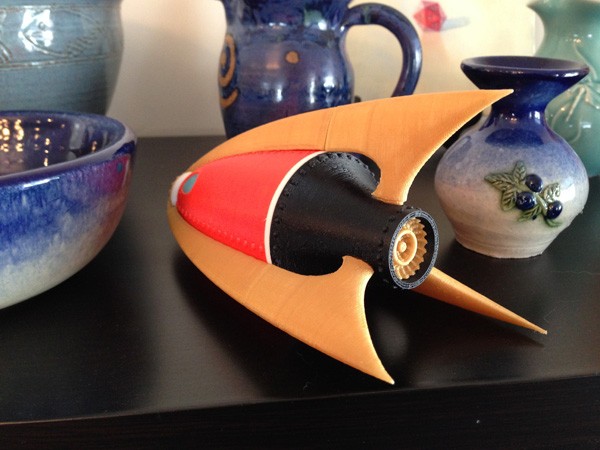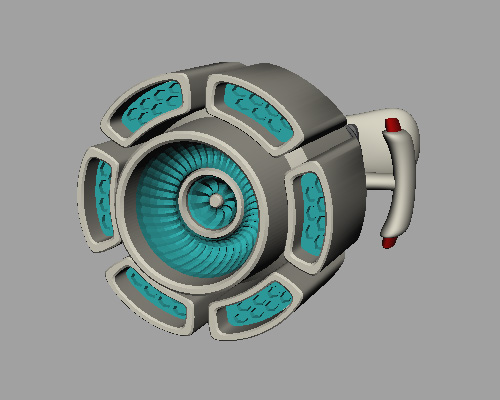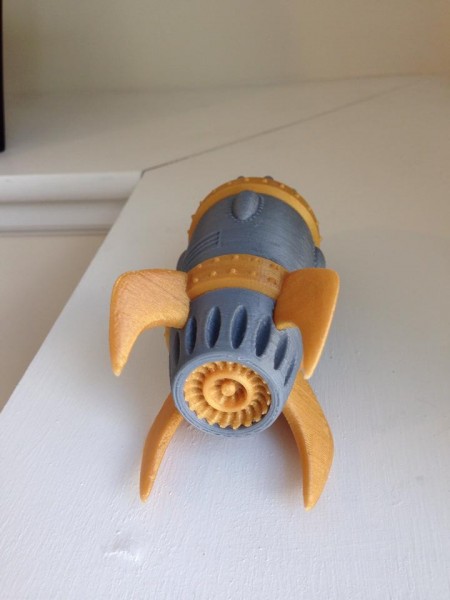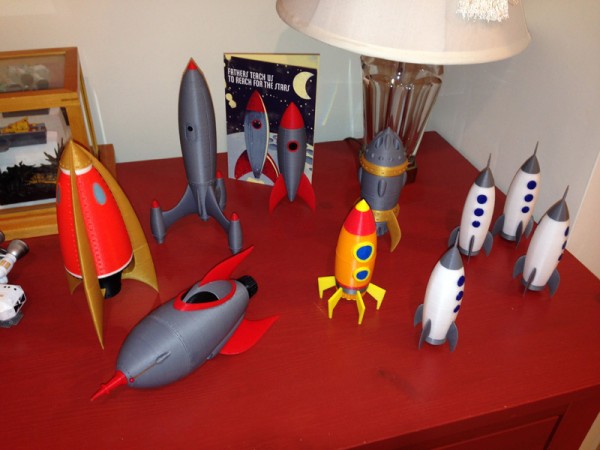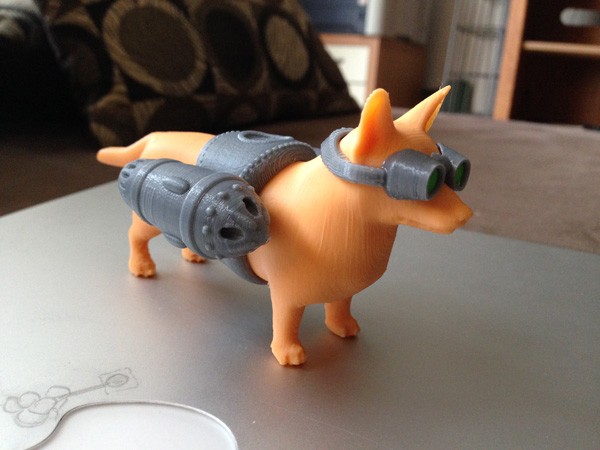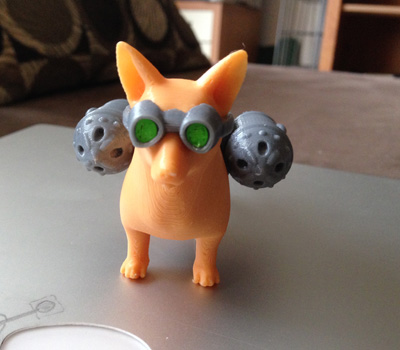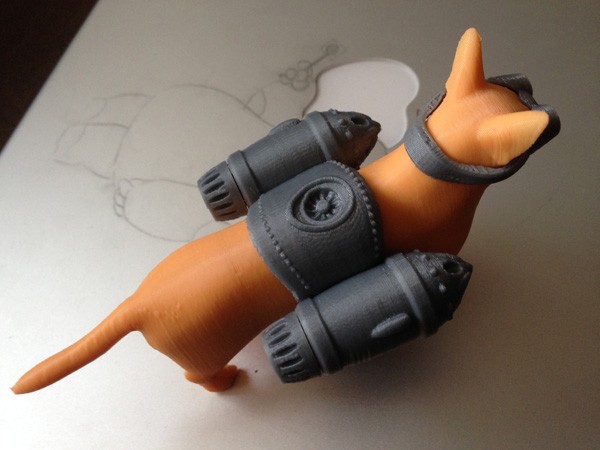Thunderbirds is 50 years old this year. ITV is celebrating this anniversary by introducing Thunderbirds Are Go!, a new CGI TV version of the original, updated quite a bit and intended to reach a new youth audience.
Three episodes in, I can see real potential. They’ve done a few things ardent fans dislike, like making Thunderbird 3 go on routine space garbage maintenance runs, but one thing they did very well was re-imagine the Thunderbirds themselves, the amazing vehicles used in International Rescue.
Here is the original Thunderbird 3 on the left, and its update. This one was a bit jarring for fans because Thunderbird 3 has suddenly taken on some square aspects that led many to call it the Lego version:
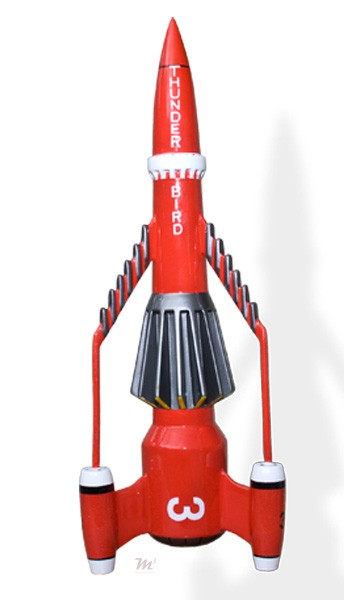
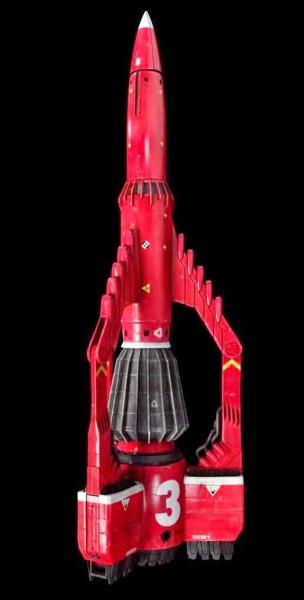
And while I spent some time last year modeling a very nice version of the original:
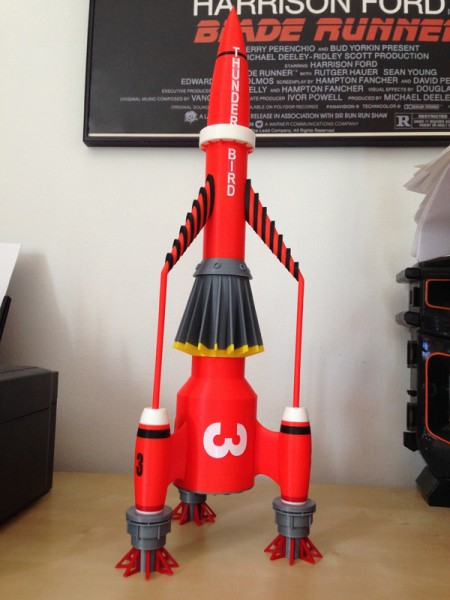
…and a lot of time on the new Thunderbird 1 as well:
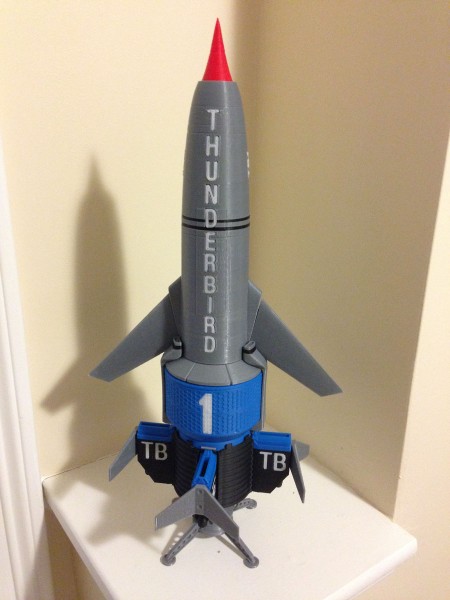
I thought it was time to model the new Thunderbird 3. (And as well, perhaps look into modeling the old Thunderbird 1, but that’s for another post.)
So I spent about two hours last night modeling, and here’s what I’ve come up with so far. There isn’t a lot of detail yet, but the framework is there:

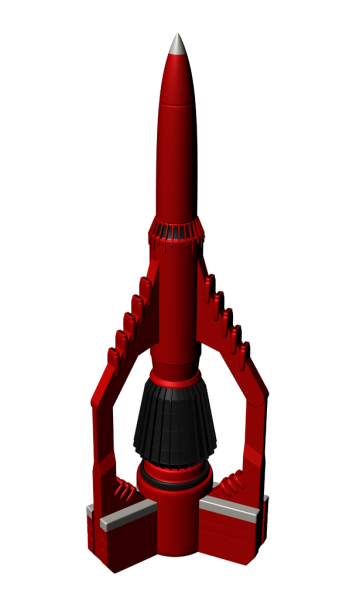
Clearly, proportion and detail will have to have some work done, but the first step is to flesh out a fairly accurate basic model, then fix the issues.
UPDATE: April 20 – Model Is Mostly Complete
I spent the last two days printing test pieces to prove the concept of the two main hinges that allow Thunderbird 3 to use its arms to grasp items in space.
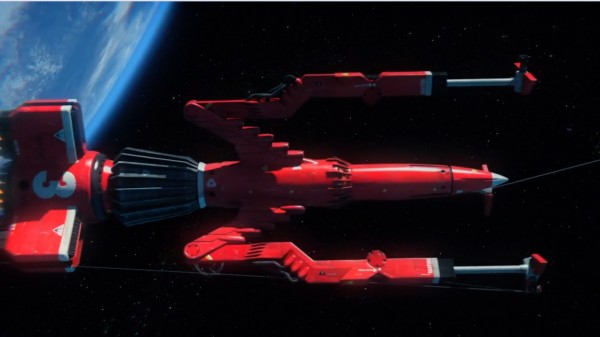
I found that it all worked ok, but with varying brittleness. Circular hinges can be brittle if they are not thick enough, and I’m constrained by scale here. But I thickened them up after finding a breaking point, and hopefully now it works.
I then spent time adding body detail, including inlaid “THUNDERBIRD” and “3”.
So here is an exploded view of all of the parts needed to put this model together.
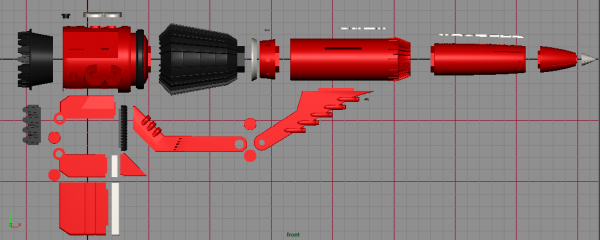
Note that a lot of the parts shown have multiples, such as the entire arm assembly, the “3”, several inlaid body details, etc.
This orthographic side view does not show a lot of the detail, not because of the size of the screen grab but because of the flat lighting.
I decided to make life easier for me when it comes to the cables that attach at the bottom of the arm “elbow” section. I modeled holes. I’m going to use flexible black filament cut into lengths for the cables. Clever, I think!
UPDATE: April 22 – Printing has begun.
Here is a tray full of parts. And some test-fitting with occasional slight tweaks and re-printing. I’m doing the whole body and one single arm now, and when that arm works, I will print the other two arms.
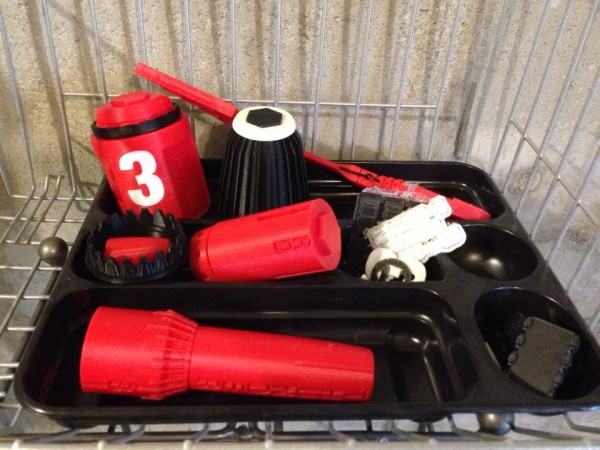
UPDATE: April 24, 2015 – Assembly
Here is a layout of all the parts (noting that this only shows one of the arms):
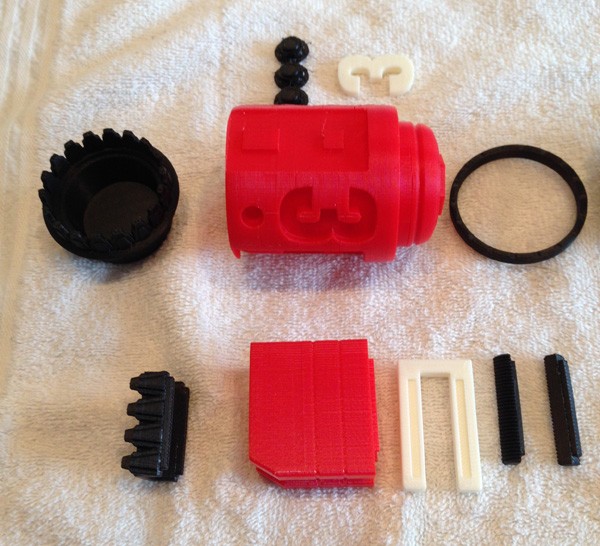
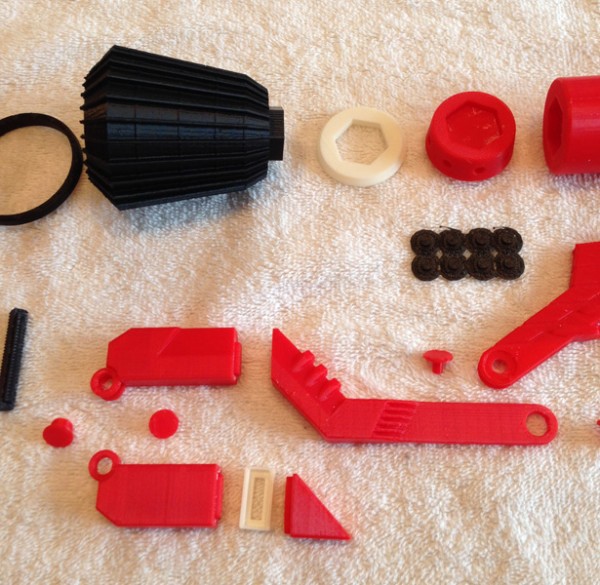
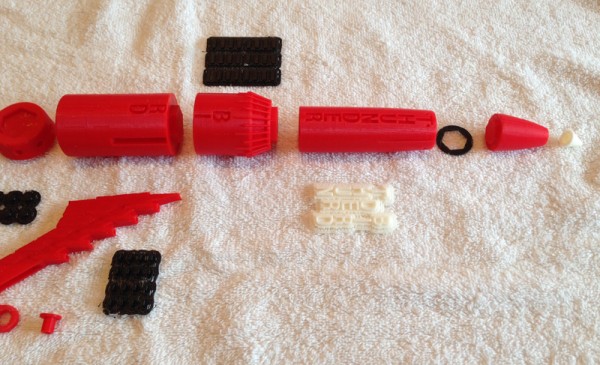
And now we begin by assembling the body from bottom up:
The “3” is inlaid into the body, with the black ring attached. The vanes have the first white ring glued.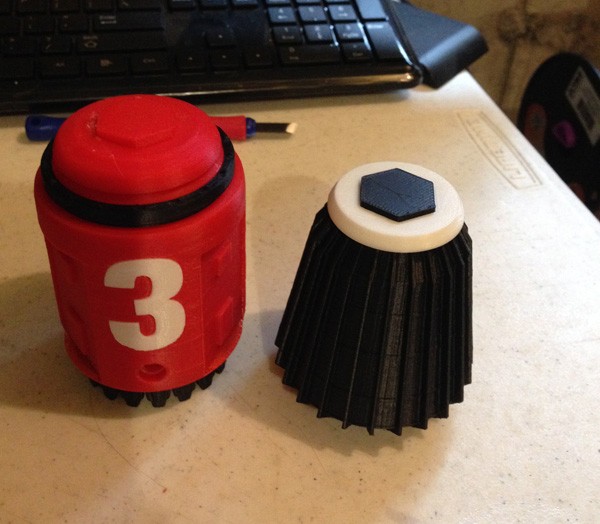
Then the vane section is attached to the bottom, with the connector ring on top: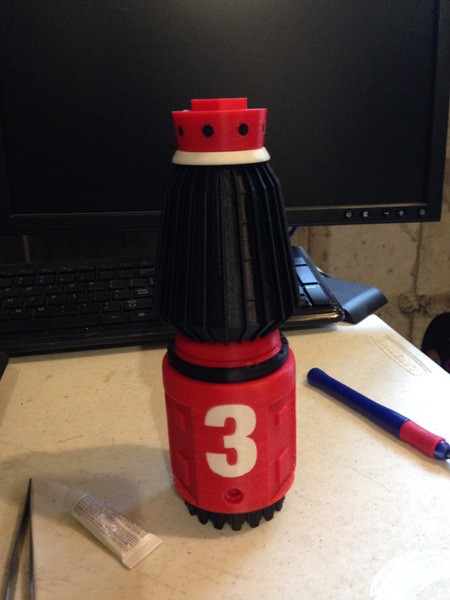
The “THUNDERBIRD” text gets inlaid: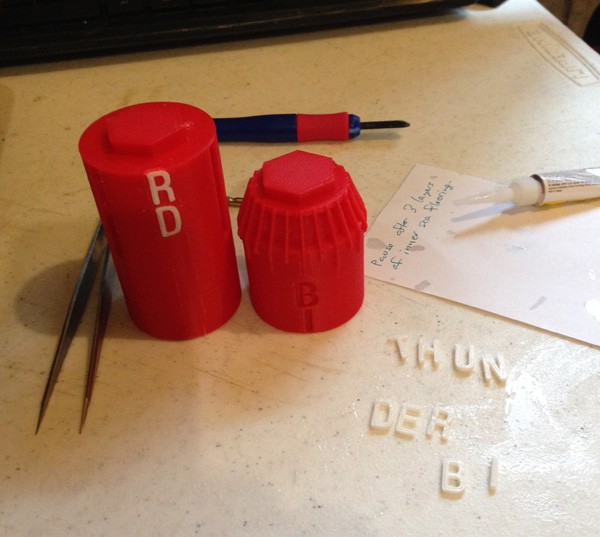
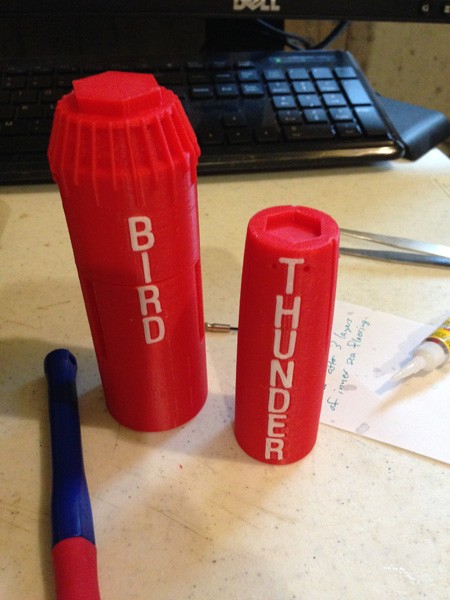
The fine positioning nozzles are just raw black filament, inserted into holes and cut:
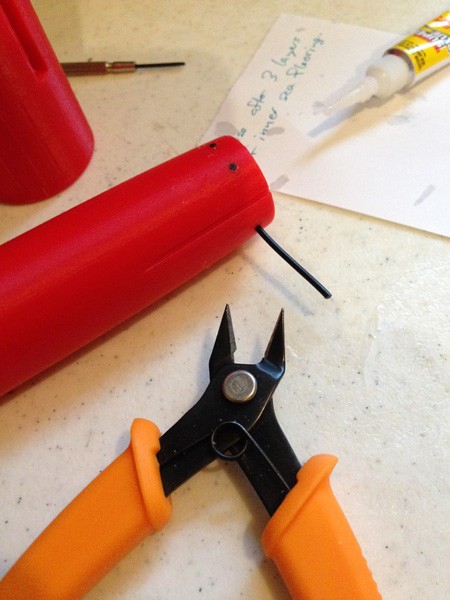
Stacked:
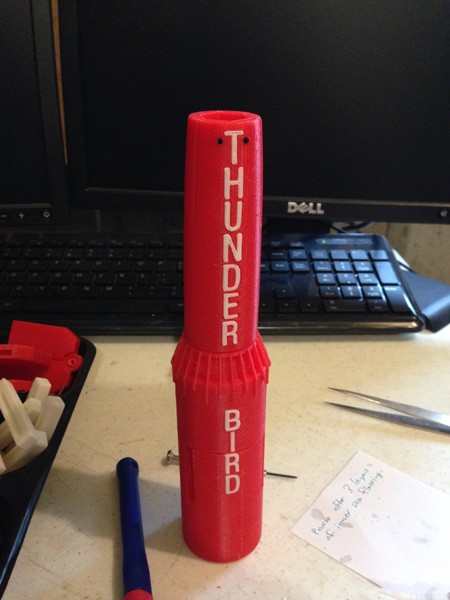
Nosecone added, and entire body assembled:
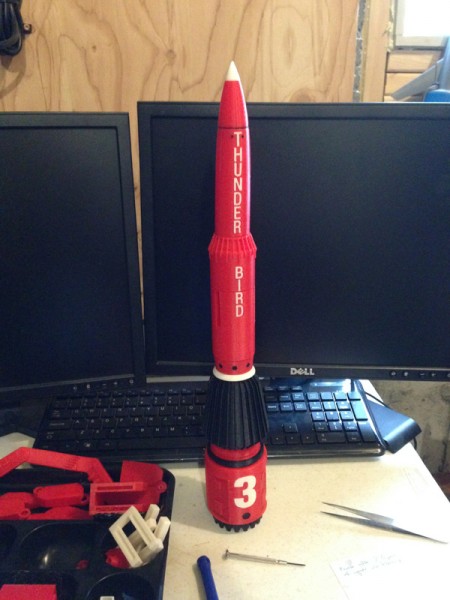
Now for the arms. Here, I begin attaching the secondary thruster housings:
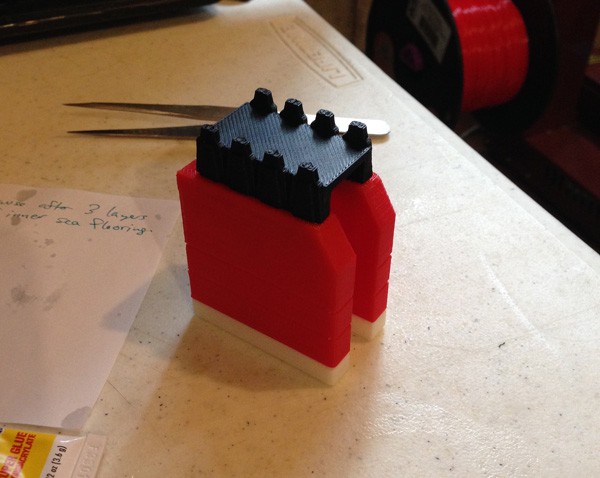
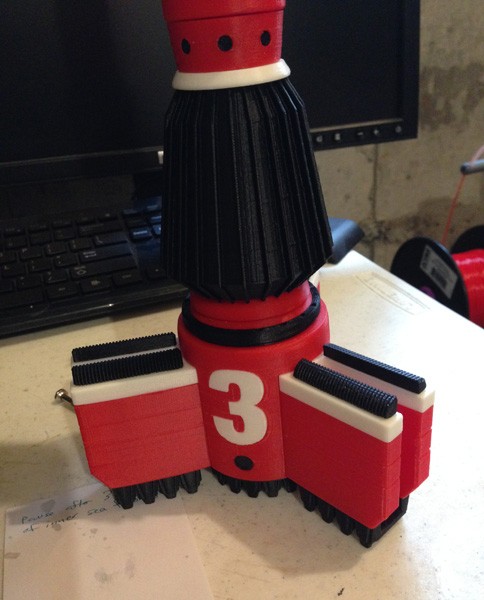
Now for the articulated arms. Each Arm has two joints, one at the “shoulder”, and one at the “elbow”, if you want an analogy to an actual arm. The “hand” consists of two triangles which in the show extend and open. In this model, that would be difficult to achieve properly so I’m just using a solid closed claw “hand” in this model, and later will model an extended version. These hands are not glued in place, so later, I can just pop these out and replace them for the fully extended hand grapples.
First, the “elbow” joint is made with three rings, two on one piece, and one on the other. A two-piece pin inserts into the hinge and glues together: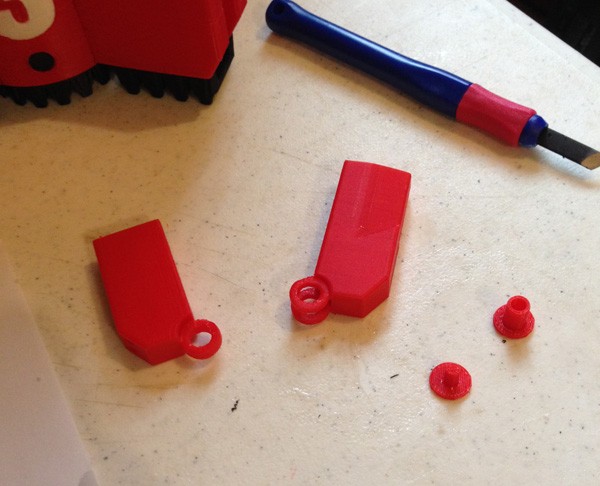
Which makes them hinge nicely: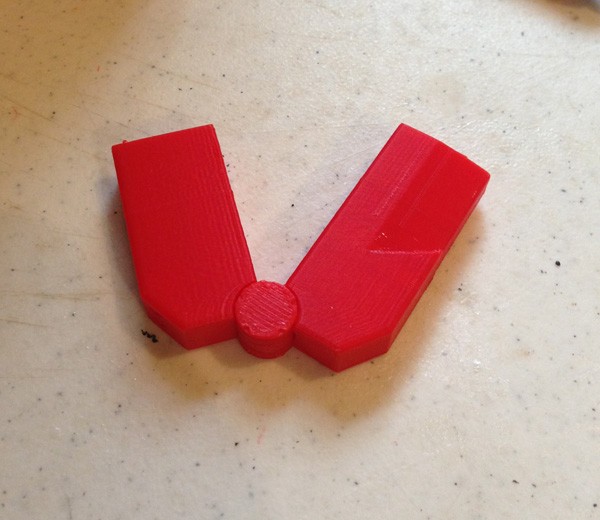
I test-fit the wrist cuff and hand to the elbow piece:
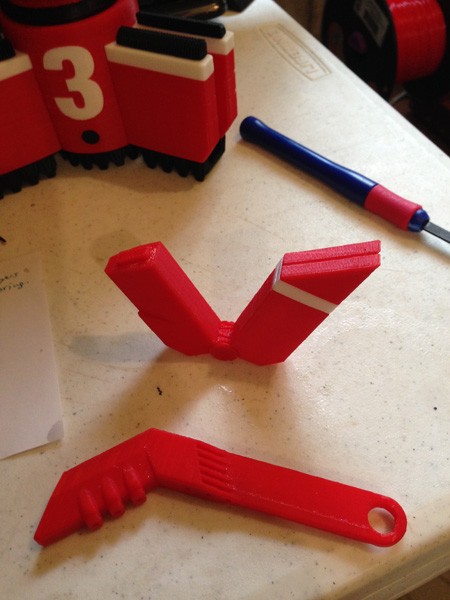
The lower arm is glued to the hinged section:
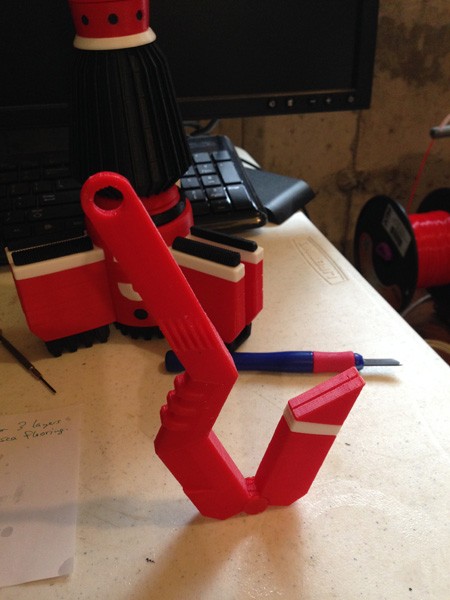
These get attached to the upper arms in exactly the same way with more two-piece pin pairs, forming a two-jointed arm system. Then 24 windows get glued in place.
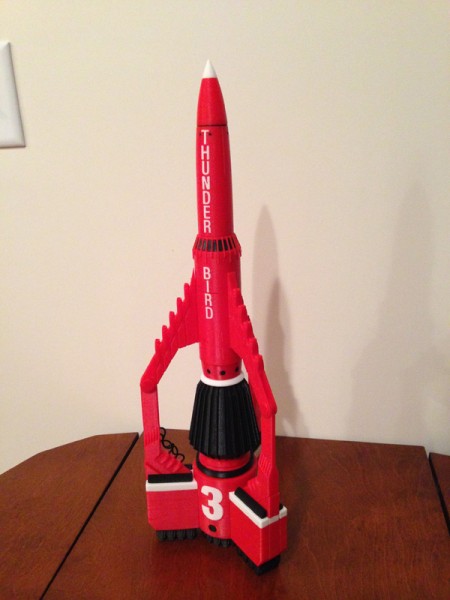
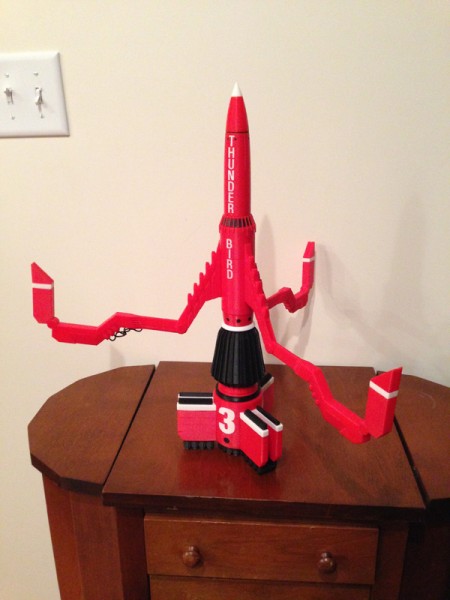
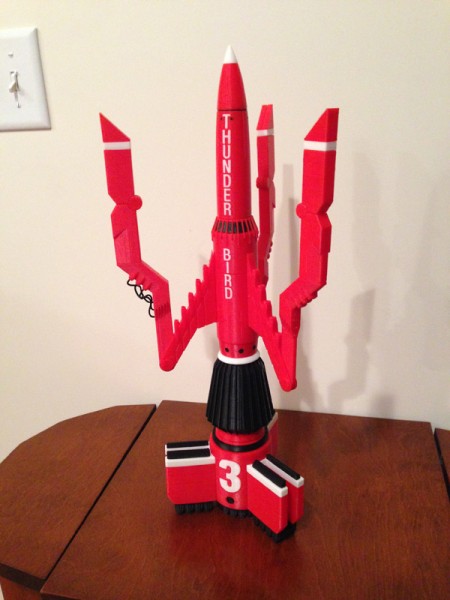
So the arms extend in exactly the same way they do in the TV show:
You may notice the hydraulic cables that work the elbow joints. They are raw black filament melted into shape into six holes on each arm. In this photo you only see one arm done, but in my final picture, they are all done:
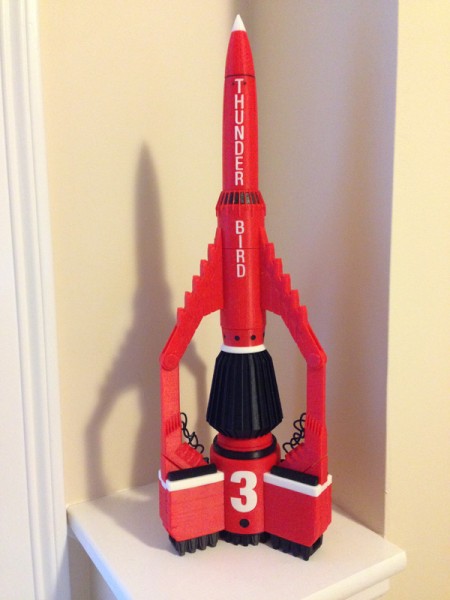
For what is a pretty decent version of this:
